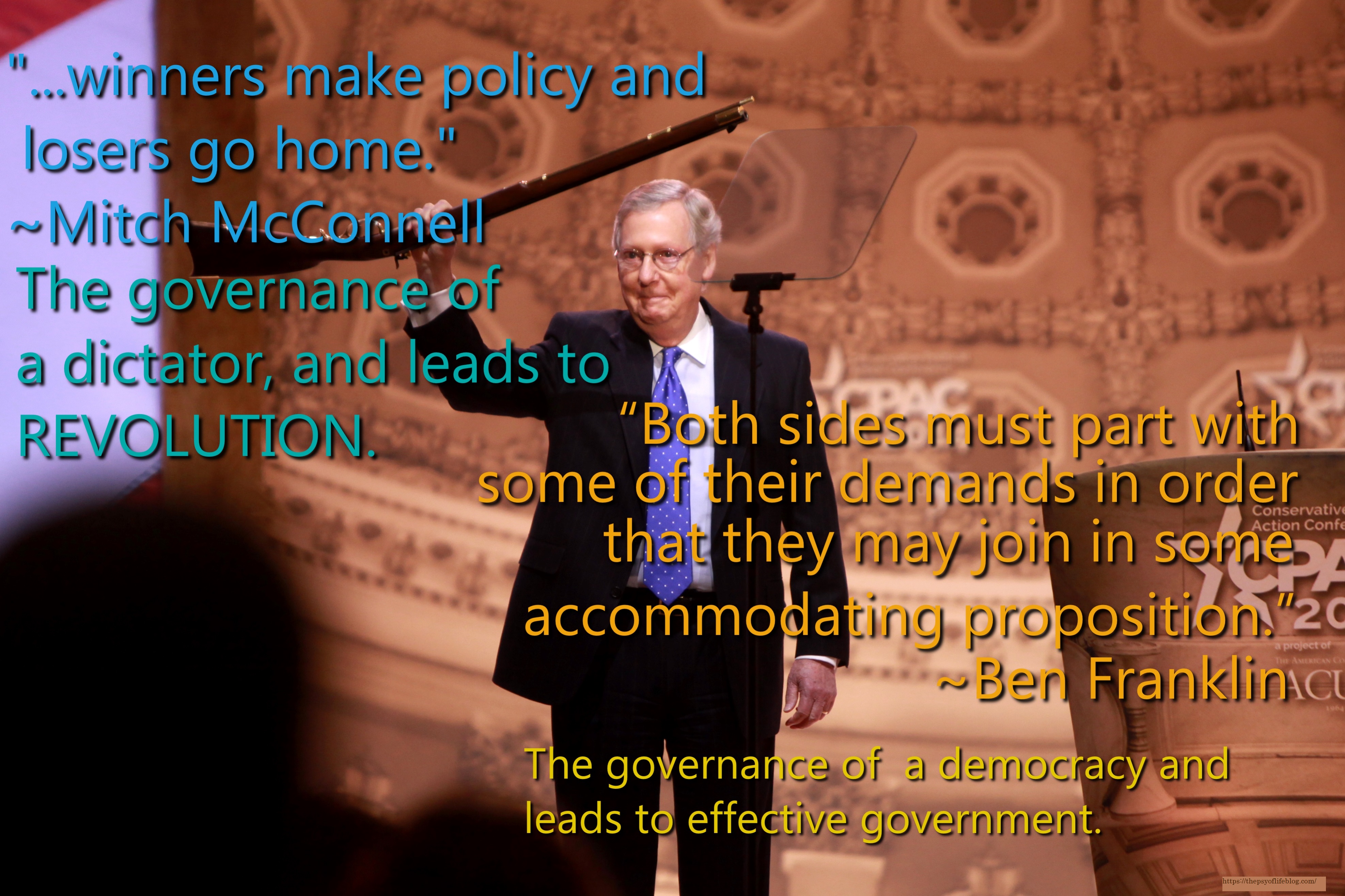Given the recent spat of high-profile police murders of PoC, we’ve had an increase in the discussion of the bad apple theory of police murderers. On the one hand, we have the usual police defenders (whiter, more conservative commentators) saying not all cops, and the cool kids saying down it is the system, not the cop. Trevor Noah perhaps said it best by claiming that the whole apple tree is rotten. The braintrust here at Ye Olde Blogge began to wonder about the role of psychopathy in police murders of PoC.
We’re not dealing with bad apples. We’re dealing with a rotten tree that happens to grow good apples, but for the most part the tree that was planted is bearing the fruit that it was intended to.
Trevor Noah quoted in the Deadline article, Trevor Noah On Racist Police Incidents: “Where Are The Good Apples?”
Who doesn’t love them some psychopathy talk? There are TV shows glamorizing the violent serial psychopathic murderers and TV shows that glamorize the violent serial psychopathic murder who preys upon violent serial psychopathic murderers. There’s been lots of speculation about which of our politicians are psychopaths. Ye Olde Blogge has contributed its fair share to this speculation. So, it should be unsurprising that we’re taking this deep dive into psychopathy and its relationship to criminality and violence in an attempt to speculate about its relationship to police murderers like Derek Chauvin.
Psychopathy
In an FBI Law Enforcement Bulletin report in 2012, psychopathy was defined as “a personality disorder that includes a cluster of interpersonal, affective, lifestyle, and antisocial traits and behaviors.“ Those four traits and behaviors have been identified as being the core of the psychopathic personality.
Regular readers might recognize some of these traits in our discussions of Trump, Mitch McConnell, Jared Kushner, and Brett Kavanaugh. As we’ve found out from those posts, there is a life-course persistent pattern of antisocial behavior that exists among those with personality disorders. It is driven by egocentrism, which in tern fuels their need for power and control.
The thing that distinguishes psychopaths from their other personality disordered brethren is their bend towards criminality. That said, there are two caveats to bear in mind: (1) like most mental health disorders, psychopathy exists on a continuum of severity and (2) psychopathy is not a real diagnosis as defined by the Diagnostic and Statistical Manual used by mental health professionals to diagnose people. In the manuals fifth addition, it is listed as one of five dimensions that personality disorders can be described with, so you can be an antisocial personality disorder with psychopathic features. That’s as close as you can get for being a diagnosed psychopath.
Psychopath traits
- deception;
- manipulation;
- irresponsibility;
- impulsivity;
- poor behavioral controls;
- stimulation seeking;
- shallow affect;
- lack of empathy, guilt, or remorse;
- sexual promiscuity;
- callous disregard for the rights of others; and
- unethical and antisocial behaviors.
Researchers rely on the Hare Psychopathy Checklist – Revised (PCL-R) and its derivations are now the gold standard for diagnosing psychopathy. The PCL-R is a twenty-question interview that is interpreted by a professional and also utilizes other documented evidence to come up with a diagnosis. The derivations are used with either sub-populations like adolescence or non-incarcerated populations.
What post on psychopathy would be complete without links to tests that YOU can take to determine whether YOU are a psychopath? Ye Olde Blogge has those quizzes just like some kind of common Cosmo or 17, so click the links for a quick quiz for you and a test on the Dark Triad, one of which is psychopathy. If you take the tests, let us know how they turn out in the comments, okay? FUN, right? I’m infrequently vile and not a psychopath.
Criminal Psychopathy
Throughout the literature on psychopathy — and there is an extensive set of literature both professional and in the popular media — there are references to the connection between criminality and psychopathy. The FBI estimates that 15 to 20% of our incarcerated population are psychopaths. That’s 15 to 20% of 2 million+ people, 90% of whom are men. Compare that with an estimated one percent of the population being a diagnosable psychopath. Remember, those are the ones who were caught and successfully prosecuted. Because psychopaths can be charming and manipulative, they often get out of charges or receive reduced sentences.
Studies suggest that diagnoses with psychopathy strongly predicts criminality and recidivism. In fact, psychopathy is a paradigm for conceptualizing serious, violent, and chronic criminality. DeLisi believes that psychopathy is “the unified theory of delinquency and criminal and the purest explanation of antisocial behavior” (emphasis, mine). As such, we should be interpreting murderous police behavior through the lens of psychopathy.
Violent Criminal Psychopathy
When psychopaths commit violent crime, though, they tend to be very calculated and goal driven. Crimes are passion are not usually committed by psychopaths in spite of claims after being caught. The violence of psychopaths is due to desires for power, control, or sadistic gratification. When we’re considering psychopathic murderous cops, this is a point well-worth remembering. Seriously, reflect on Chauvin’s knee on Floyd’s neck for nine and a half minutes.
Consider these other points about the criminality of psychopaths:
- Not all psychopaths are created equally. Some of the four traits are more likely to lead to criminal conduct.
- The four are interpersonal, affective, lifestyle, and antisocial.
- Traits like impulsivity, lack of empathy, and grandiosity correlates with increased criminal behavior.
- Interpersonal traits include a grandiose sense of self worth.
- Affective traits include a lack of empathy.
- Lifestyle traits include impulsivity and stimulus seeking.
- Some environments should discourage delinquent behavior like being responsible for enforcing the law, but psychopathy predicts the antisocial behavior that is committed in those environments.
- Psychopathic offenders
- commit both more offenses and more types of offenses.
- are more likely to engage in institutional misbehavior — you know breaking the rules at work.
- are more likely to have committed instrumental violence at some point in their criminal careers.
- are more likely to be reoffend once released from incarceration and do so more quickly, severely, and commit more types of crime.
- resist therapy more than other offenders (they are more difficult to rehabilitate).
- are motivated by revenge and retribution more than other offenders.
- are less likely to be more emotional when they committed their crimes than non-psychopaths.
- Psychopathy correlates with the use of instrumental violence in spousal abuse.
Psychopathy and Police Offenders
If we think about various incidents in which the police murder an unarmed Black person, we might could begin to speculate about which incidents involved a psychopath and which did not. So, let’s consider the following:
- Since psychopaths are the most likely to reoffend and escalate their offenses (past behavior is the best predictor of future behavior, after all), officers with a record of violence, bullying, and antisocial behavior whether on the job or not, should be suspect. It is the best argument for a national registry of police misconduct and denying a officers the ability of resigning after an incident and just moving on to another police department.
- Because psychopaths are more likely to be recidivists, escalate their criminality, and don’t respond to therapeutic intervention, careful attention should be paid to a pattern of minor infractions that are followed by more serious infractions.
- The state of mind of the officer at the time of the infraction should be carefully evaluated. All officers will claim to be in fear of their lives when they murder an unarmed Black person. It is their magical get out of jail free card, but there are some who are more emotionally distraught and those who are less at the time of the shooting. Let’s review some examples:
- Chauvin, obviously, was not emotionally distraught and has a long history of multiple offenses.
- Kim Potter was “shook” when she shot Daunte Wright. She shouldn’t’ve been, but it is clear from the tenor of her voice that she was.
- Pantaleo clearly murdered Eric Gardner. It was a death that was easily prevented and didn’t have to be.
- Slager clearly murdered Walter Scott by shooting him in the back as he fled and planting his taser on him.
- Timothy Loehmann shot Tamir Rice within seconds of arrival on the scene. He had no time for emotional arousal, no time to evaluate the situation, and had a long history of serious offenses across multiple police jurisdictions.
- Darren Wilson shot Michael Brown from a safe distance. Was he emotionally distraught after an encounter at his squad car window? Was it revenge and retribution for having humiliated him in that encounter? It is hard to see how he feared for his life in that situation, and he had a history of complaints against him.
- Freddie Gray’s — the police used their paddy wagon to beat him to death during a “rough” ride — was callous and malicious. The officers involved had no empathy for his welfare.
When you hear about a police officer killing a Black person, you have to ask yourself three questions:
- How emotionally aroused was the officer at the time of the killing? The lower the arousal level, the more likely the officer is a dangerous psychopath.
- Does the officer have a history of complaints against him or her? The more complaints, the more likely the officer is a dangerous psychopath.
- Does the officer have a history of using violence, the threat of violence, or intimidation to achieve goals? This violence can be domestic violence, off-duty incidents, or incidents prior to becoming a police officer.
Clearly, when we talk about reforming police, the role of psychopathy in police abuse of force must be part of the discussion. The presence of a charming manipulative psychopath on a police force can corrupt other officers much in the same way disparagement humor can encourage biased behavior from those who overhear it. These officers brag about their exploits and violations of the rules. They encourage others to do so, too.

If you enjoyed this analysis of the role psychopathy plays in police abuse of force, then join our email list and never miss a post!
Image Attribution
“Seven Psychopaths” by guibwho is licensed under CC BY-NC-SA 2.0
Categories: Antisocial Personality Disorder






















Reblogged this on cabbagesandkings524 and commented:
Calico Jack – policing and psychopathy
LikeLiked by 1 person
I’m reminded of a situation I witnessed at a little distance many years ago. A friend had gotten entrapped in a drug enforcement scheme, a “build them up to take them down” sort of thing. When the bust went down they failed to coordinate on him and his buddy (the one with the goods, a bag of some very high quality LSD microdots), and my friend was warned and went on the lamb. The DEA agents took to calling and harassing everybody in his phone records to get him to turn himself in. That included his mother who was dying of cancer. They were even threatening to prosecute anybody who didn’t help them.
What did I learn? I came to the football analogy. The cops & robbers game is like football. Both teams are playing the same game, by the same rules, on the same field. The job qualifications are the same. The old saying, “Set a thief to catch a thief.” holds true. Who better, or more likely to enjoy catching psychopaths than other psychopaths? Who will understand them better, and predict their behavior better? And, what safer place to be a psychopath than behind a badge?
One does not have to be a psychopath to become, or want to become, a cop, but the attraction is strong.
On somewhat, but mayby not much of a side note, the metaphor of the poison tree reminded me of a poem:
A Poison Tree
By William Blake
I was angry with my friend;
I told my wrath, my wrath did end.
I was angry with my foe:
I told it not, my wrath did grow.
And I waterd it in fears,
Night & morning with my tears:
And I sunned it with smiles,
And with soft deceitful wiles.
And it grew both day and night.
Till it bore an apple bright.
And my foe beheld it shine,
And he knew that it was mine.
And into my garden stole,
When the night had veild the pole;
In the morning glad I see;
My foe outstretched beneath the tree.
LikeLiked by 2 people
Howdy Bob!
I imagine that most psychopaths realize that they are not like most people and set about figuring out how to either fit in or get by. One way to fit in is to look for a job where your psychopathic traits are needed, and where else, especially if you lack the aptitude to become a doctor or dentist, who are often psychopaths, too, than the police? It makes sense. And, psychopaths will seduce those around them into supporting their delinquent inclinations.
What happened to your friend? I had a friend in a similar situation, who stole someone’s identity to get a passport. They were caught at the border because their stolen identity had a federal warrant. Oops.
That’s a poem full of schadenfreude until you apply it to the police growing the tree and Black and Brown people consuming the fruit, and then it is just sad because it is so vicious.
Huzzah!
Jack
LikeLiked by 1 person
My friend turned himself in after about six months and serving 18 months in a federal facility. He really wasn’t cut out for the fugitive life. He was insufficiently paranoid.
It might be interesting to do a study of the fictional super detectives in regard to psychopathy. I haven’t read enough of Agatha Christy, Rex Stout, and some others to assess their protagonists (one would hesitate to call Miss Marple a psychopath). I’m most familiar with Sherlock Holmes who does show significant anti-social and narcissistic traits, but combined with obsessive attention to detail and features on the autism spectrum.
Blake certainly caught the essence of the spirit of vengeance, and in the first stanza the genesis of the urge.
LikeLiked by 1 person
Howdy Bob!
Blake’s poem seems to fit the GQP, too. They are not honestly telling us their wrath; they are withholding it. Their wrath is racial. They are not speaking in dog whistles as much any more, but they aren’t being honest about their racism, wither. Witness the recent statement on the 3/5ths compromise in the Tennessee House and McConnell’s statement that 1619 isn’t a significant date in American history and their lies about their voter suppression laws. By holding it in, they make any attempts to govern with them, toxic to our democracy.
They really have boxed us into a corner.If we attempt to treat them as if they are an honest reliable partner in governance, we’re screwed because they will destroy our democracy. If we act as partisan as they are, we’re screwed because it will destroy our democracy. It is the corpse of our democracy lying under their tree of “liberty.”
As far as book characters, yes it is interesting to examine their psychology and diagnoses. There is a small literary cottage industry formed around it. I feel that Sherlock Holmes is a psychopath more than a narcissist. He’s definitely autistic and has very strong executive functioning. Some of them, like Miss Marple, are just not possible. She’s a good example of what role players call a Mary Sue — overpowered and unrealistic.They have too many contradictions in their personalities. Personality traits tend to cluster. The lay person believes that being as smart as Holmes was would lead to arrogant, conceited, callousness, for example. Earlier versions of Miss Marple as a nosy gossip were more believable.
Hopefully, your friend is more suited to incarceration than he was it fugitive and gains his release with little harm done to him.
Huzzah!
Jack
LikeLiked by 1 person
I think you hit the spot about the poem and the GOP. They have gotten more open about their racial rage, but leave that mostly to the actors outside the formal party structure while officially focusing on other excuses (“vote fraud”, social issues, gun control, face masks, etc.) Part of the problem is that any effort to call them out on the deception looks simply partisan and is criticized or dismissed as such rather than on its merits.
My friend managed through his brief time as a guest of the government fairly well. It did not cure him of thinking he was always the smartest person in the room. We lost touch a few years later, so I don’t know whether becoming a parent might have moderated that opinion.
LikeLiked by 1 person
Being a parent moderates a lot of your misconceptions about yourself and the world. It also creates a few. Many maybe even most, mental health issues moderate with age. Unfortunately, narcissism ain’t one of them. It usually worsens with age.
Trying to convince the GQP to be less partisan is going to be like trying to convince a rattlesnake not to strike. They sense that they have the advantage, so they’re going to use it.
Huzzah!
Jack
LikeLiked by 1 person
Being a parent does turn out to be one of life’s great reality checks. The thing about his thinking he was the smartest in the room was that in a lot of rooms, he was, despite a few non-brilliant decisions. Anyway, his involvement with the minions of the DEA was 40 years ago and he has since departed the mortal plane.
The GOP has committed itself to absolute victory for more than a generation, at least since the Gingrich pronouncement of the “Permanent Majority”. I’m afraid that the only cure is repeated, utter, and ignominious defeat, or fatal fracturing of its coalition due to demographic change (hence, voter suppression) and the rise of a generation that gets it about climate change and such.
LikeLiked by 1 person
Howdy Bob!
Just because you are the smartest person in the room doesn’t mean (a) that you’re not a narcissist and (b) that all your decisions will be based on good judgment. It sounds like he had an adventurous life at least.
The problem is that the GQP may have gerrymander, suppressed enough of the vote, and taken enough advantage of their structural advantages to not lose no matter how worried any of us are about climate change. The only thing that could threaten it is a fracturing of their coalition, but white people have been pretty stubbornly voting GQP for a long time. They are working on a plan that they could win the Electoral College in spite of losing the popular vote by 7%. We could be in serious trouble here. Newt may live long enough to see his Permanent Majority come to fruition.
Huzzah!
Jack
LikeLiked by 1 person
There is some hope to be had if enough of the Dems’ big spending plans can be pushed through that enough white people will vote their wallets instead of their fears.
LikeLiked by 1 person
But, isn’t that the issue with having a 50-50 Senate with moderate and conservatives like Manchin and Sinema making up that 50? We may not have the votes to get it through. Negotiations should be able to get the infrastructure plan passed in some form or fashion through reconciliation, but much of the rest of it will die with the filibuster. I guess I’m just feeling a bit pessimistic of late.
Jack
LikeLiked by 1 person
The filibuster is part of the puzzle and may be somehow resolved, or not. Pessimism is being easy to get into.
LikeLiked by 1 person
Howdy Bob!
Convincing Manchin and Sinema and whoever else is waiting in the wings to reform the filibuster is the key. What can the Dems give them to bring them on board? Why isn’t the prospect of the GQP ending democracy as we know it sufficient to bring them on board?
Anywho, my pessimism is the topic of one of this week’s or next’s blog post.
Huzzah!
Jack
LikeLiked by 1 person
The key to persuading the hold outs may be that a lot of people, Big People, not just little people stand to make a huge amount of money if the Biden spending plans can get passed. That translates to campaign funding and jobs in their districts, and important people in those districts wanting money spent there. It is harder to distract those who are focused on the bottom line with bullshit “issues”, than it is the low information voters and non-voters.
LikeLiked by 1 person
Howdy Bob!
That’s close to minority influence in which the minority view convinces the majority to change. It helps to have celebrities or people from the majority to advocate for the minority view. There are a few more factors like consistency of message and sincerity.
The Republicans, like your Rep. Cawthorn, are just taking credit by “celebrating” the disbursement of federal relief money in their districts. That ought to confuse enough of the electorate to convince them that the money isn’t related to the Recovery Act much like people don’t realize that Medicaid is federal program or that private businesses can regulate your speech.
You know, this is going to be a weird election in 2022 because of so many factors that are impossible to judge the effect of the legislation that the Dems pass, the obstruction and social issues that the GQP uses to distract with, the lack of Trump running, the voter suppression laws, and anything else that might happen between now and then.
Huzzah!
Jack
LikeLiked by 1 person
I would not want to have the job of figuring odds for bookies in the business of taking political bets.
LikeLiked by 1 person
Yeah. ’22 is going to be hard to call unless something happens to clarify things. Who knows. It might.
LikeLiked by 1 person
To paraphrase a famous lyric: It’s a long, long way from now to November 22.
LikeLiked by 1 person
I guess there really is a god. This showed up in my Twitter feed:
https://health.clevelandclinic.org/yes-covid-19-can-cause-erectile-dysfunction/
Jack
LikeLiked by 1 person
Well, what da ya know? Of course, it makes biological sense. I bookmarked it. I’ll be posting it to my FB page later.
LikeLiked by 1 person
Howdy Bob!
I”m really off FB. I still have an account and visit occasionally, but just don’t do much. Their attitude towards misinformation and disinformation is appalling. And, I have a FB page for the blog, but they’ve deemed that I have irrevocably broken their spam rules, so links to the blog can’t be posted. So, there’s that.
Huzzah!
Jack
LikeLiked by 1 person
I know. I once tried to share one of yours to FB and got the message. Considering much else that get on there it is kind of strange. I limit my time there to about 1/2 hour/day.
LikeLiked by 1 person
For a full year, I appealed it every week. For a month, I appealed it every day. I got nothing back. The only way I know the violation is because they updated their message identifying more specifically the violation. I think there was a MAGA who “reported” the page and got the ball rolling. Once it rolls, it is difficult to stop. A Newtonian thing.
LikeLiked by 1 person
Maybe you could push it to the Oversight Board. It seems that a lot of what they get results from exactly that kind of obfuscated process. It might be fun.
LikeLiked by 1 person
The FB appeal process is buried deeply in their dashboard and well obfuscated. It ain’t clear at all. It is an idea. I may look into it just because it might be a fun summer project.
Jack
LikeLiked by 1 person
I’m sure it would lead to some interesting, snarky, and profaney observations on Ye Olde Blogge.
LikeLiked by 1 person
I’ll live blog the effort… maybe not. There will be a lot of waiting and cursing, but not much else.
Jack
LikeLiked by 1 person
Very likely. “Hurry up and wait.” is an effective way to discourage unwanted input.
LikeLiked by 1 person
“Hurry up and wait,” was the byword of my military days. This will be like screaming into the abyss, I’m sure.
LikeLiked by 1 person
Yes, but maybe, just maybe the abyss will scream back.
LikeLiked by 1 person
A whisper would be fine.
LikeLiked by 1 person
LOL – Probably to be preferred.
LikeLiked by 1 person
Whatever the response, I won’t be holding my breath, as they say.
LikeLiked by 1 person
Right.
LikeLiked by 1 person